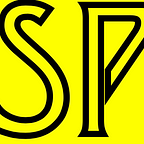Experiments with economy — transitioning into laisez-faire approach
The world economic order witnessed quantum structural ramifications with the fall of the Berlin wall in 1989. The event set in motion a series of incidents that ultimately steered a paradigm shift. This phase is popularly associated with the transition of Russia, formerly the Soviet Union, from a communist to a free-market economy.Marxism has been a subject of global scrutiny since its inception and has been plagued by rampant scathing criticisms of its inherent weaknesses and potential long-term threats. Some of them are lack of incentives for profits and innovation, corruption, non-price rationing, uncertainty, famines among several others that ultimately distort the optimality in resource allocation. The dilemma encountered by Robert Frost in his poem, “The Road Not Taken”, is the one that too stood afront the Russian leaders and intellectuals. Such a transition from “control” to “freedom” can be quite tumultuous. The essay briefly traces the gradient of the transition by juxtaposing it with that of China.
The late nineteenth century was characterized by a gospel of market economics, pioneered by the western nations and propagated by the International Monetary Fund(IMF). It was during this era that several economic transitions occurred, against the backdrop of the fall of the Berlin Wall in late 1989, disintegration of the USSR, and finally, the Russian economic transition. On the other hand, an ambitious and populous Russian neighbor underwent a similar treatment for the ailing communism in the late 1970s. However, the global community witnessed these spectacles with an equal enthusiasm, both fundamentally differing in their speed of economic reforms.
The Chinese leaders, possibly risk-averse, chose to adopt a ‘gradualist’ or ‘incremental’ approach. They believed a simultaneous coexistence of the previous economic system, communism, with the newly-popular market economic reforms would eventually lead to a rewarding performance in economic indices in the long-run. Notably, their reforms were implemented in such a way that often a consensus, rather than fierce dissent and debates, between the political system or ideologies of Chinese Communist Party and the radical implementations Such a risk-averse behavior catapulted China to become one of the emerging economic, as well as political, superpower from Asia. This controlled transition expanded its private sector by ensuring adequate incentivisation, while still leveraging the high-success rate of state monopolies.
In contrast, the IMF and Russians asserted that shock therapy was instead a more fruitful approach. Under such reforms, Russia experiences rapid privatization, instantaneous price liberalization, stabilization etc. They believed that fast-paced intensive transitions would eradicate any potential room for corruption and ultimately boost the creation speed and success rate of a capitalist economy. Following this methodology, Russia created institutional mechanisms to regulate markets and deploy resources in a more efficient, yet radical manner, and finally, inculcate entrepreneurship that roots incentives and profits and ultimately stem the probability of failure. The experience of Russia in the early years of the transition was of declining economy and pessimistic reforms, with the middle class having been engulfed with crony and mafia capitalism, accompanied with diminishing democratic practices.
Akin to Robert Frost, who could never imagine what it would be to travel the other road, the global community too cannot contemplate what would have been the experience of either countries in the other approach that it did not choose.
